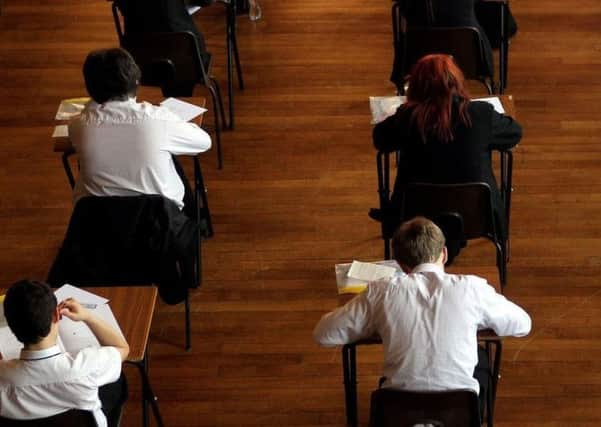Fewer NI students expected to get A* grade in GCSE shake-up


Some students will also get the new C* grade as the Council for the Curriculum, Examinations and Assessment (CCEA) attempts to align their marking system with England.
The changes were announced by CCEA yesterday as students in Northern Ireland began sitting the exams which will be graded using the new scale.
Advertisement
Hide AdAdvertisement
Hide AdThe organisation said that the reduction in A* grades did not translate as a dip in performance, rather the bar had been raised for elite students.
Awarding organisations in England have already implemented changes to GCSE grading with the introduction of a numeral scale where nine is the highest mark and one is the lowest.
In 2016 then-education minister Peter Weir chose to retain the A*-G lettered grades in Northern Ireland but rework them to reflect the 9-1 English scale. This has meant the introduction of a C* grade.
A new GCSE grade was last introduced in the Province in 1994 when pupils received A* grades for the first time.
Advertisement
Hide AdAdvertisement
Hide AdCCEA chief executive Justin Edwards explained that despite a new C* grade being introduced the number of students achieving a pass grade of C and above was expected to stay the same.
However, he said that the CCEA anticipated that fewer students would receive the A* grade as it is now aligned with the nine grade to “reflect exceptional performance”.
He said it was difficult to predict how sharply A* grades would fall but as an example he said in England when the new grades were introduced the number of students getting the top grade fell from 6.5% to 3.5%.
Last year 9.5% of GCSE students here achieved the A* grade, well above the UK average of 7.1%.
Advertisement
Hide AdAdvertisement
Hide AdMr Edwards believed the number of NI students getting A and above would remain the same but there would be a reduction in B and C grades due to the introduction of the new C* grade.
Over the coming weeks around 95% of GCSE pupils in Northern Ireland (28,000 students) will sit CCEA exams to be graded in the A*-G format. The rest will sit exams through AQA, OCR, Pearson or Eduqas in the 9-1 format.
It means that some NI pupils could be unique in having GCSE grades that are a mixture of letters and numbers.
Mr Edwards said: “All GCSEs, regardless of whether they are graded using letters or numbers, will continue to reflect learners’ achievements. Employers, colleges and universities will recognise and value the grades awarded.”